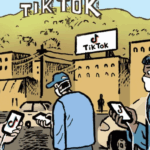 The confluence of health data and advertising is a privacy-sensitive subject, and marketers have generally been slow to adopt automation in the health care sector.
The confluence of health data and advertising is a privacy-sensitive subject, and marketers have generally been slow to adopt automation in the health care sector.
But two Publicis Groupe agencies are looking to bridge the gap between automation and health care marketing. On Wednesday, VivaKi and Publicis Health Media (PHM) unwrapped their programmatic buying solution for health marketers and publishers, dubbed AOD Health.
Programmatic has lagged in the pharmaceutical and health care sectors, despite swelling ad spend in the industry. eMarketer projects the pharmaceutical industry will spend $1.4 billion on digital media in 2014, and $2.2 billion in 2018.
“Programmatic adoption has been slow in the pharmaceutical and health care sector,” VivaKi’s president of global solutions, Doug Kofoid, told AdExchanger. “So, this is a huge area of growth we’re just now tapping in to.”
Despite apparent hesitance, recent signals from tech companies such as Apple, Google and others suggest that consumer platform companies, at least, are ready to test the waters. Facebook, for instance, is in the early stages of creating online “support communities” that would connect users with similar health interests, Reuters reported late last week.
According to PHM’s director of media, Benjamin Visich, bringing data-driven media buying to the health care sector only requires addressing regulatory and privacy concerns head-on.
“Ensuring that clients are comfortable with this paradigm shift away from repurchasing inventory to leveraging programmatic to purchase qualified, targeted audiences is the main hurdle,” Visich said. “With AOD Health, we’ve ironed out those barriers in terms of the regulatory requirements and the creative requirements as well as some of the ad verification requirements that have been wrapped into this new solution.”
“Our biggest restrictions have actually come from the advertisers and technology vendors,” added Kofoid, “as each takes a slightly different approach to how conservative[ly] they want to be using data to target consumers.”
In terms of the tech, AOD Health rolls together VivaKi’s media-buying platform, Audience On Demand, with PHM’s direct-to-consumer reach. The pairing affords marketers access to both companies’ data, inventory and technology relationships.
According to the press release, “AOD will augment its workflow with steps to identify and adhere to advertiser-specific medical, legal and regulatory policies and preferences for: collecting first-party data through remarketing pixels, targeting strategies such as third-party data prospecting and adhering to industry-specific inventory requirements.”
A handful of clients are already leveraging AOD Health, but the companies declined to identify any.
The Privacy Question
How do VivaKi and PHM plan to overcome privacy concerns that have hindered programmatic adoption in health care?
“We won’t look to leverage PII,” Visich said “A lot of the data we access through partnerships is based on health interest data. This can clearly be differentiated from PII data. But when we couple health interest data with the multitude of sources out there – demographic data, semantic-based data, contextual based data – it runs the gamut of a multitude of data sources without needing to go to that level of PII, which would be truly invasive.”
“But it’s on us to present and voice how we solve for those concerns with our respective clients,” he added, “to make them feel 100% comfortable in using this service prior to launching.”
AOD Health is in the trial phase, but the aim is to line up an official launch as the companies proceed with their 2015 campaigns.














